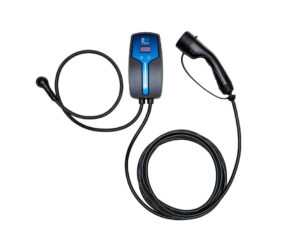Q: “When it says the portable charging cable is a Type 2, does that mean it will fit a Type 2 EV/PHEV?”
A: “Yes, the charging port found on your vehicle is in the name of our EV Power EV portable charging cable.
For example, our Type 2 Classic Plus 5.0 is a 10 Amp portable charging cable that will fit a Type 2 car and the rate can be set at 6 Amp, 8 Amp or 10 amp, if desired.

Q: “Which charging lead do I need for my Type 2 PHEV so that I can charge in public?”
A: “Charging leads are named by listing the plug type at the power source end first, followed by the plug type at the vehicle end. For example, the EV Power Type 2 to Type 2 Lead 10m, will fit a Type 2 car. It will charge at an AC power source with a Type 2 socket. If you have a Type 1 car ( ex -Japan for example ) then a Type 2 to Type 1 lead is needed.
Q: “Do I need my own charging lead for public charging stations?”
A: “Public AC chargers found near shops and businesses may require you to supply your own (BYO).”
Q: “Are 16 Amp ‘Caravan Plugs’ Safe?”
A: “New Zealand defaulted to the ‘Caravan’ plug (Commando/CEE) early on in the EV revolution. These plugs can carry a higher amp rating than the three-pin plug.
Advice from WorkSafe and Master Electricians is that these devices should be fitted with an RCD Type B (for detection of direct current (DC) in case of a car-side charging fault. In the very unlikely event of a vehicle’s onboard charger having a fault, there is a chance of DC going back into a switchboard, which could be an issue with potential fire risk (in the extreme).
The cost of the RCD Type B device and installation was often a deterrent to buyers (approx. $600+).
EV Power 16 Amp portable charging cables have 6ma DC detection built in! No need to buy a RCD Type B with our product. Buy with confidence. We have added this feature to all our portable ( IC-CPD ) devices.